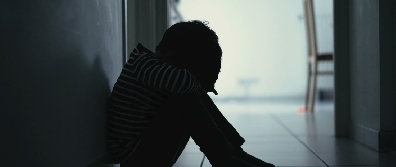The Negative Effects of Texas's New Solicitation and Strip Club Laws
As we head into 2022, the effects of new legislation passed by the State of Texas in 2021 are beginning to come to fruition. The State has passed many bills addressing various matters, but one of the most drastic changes to existing legislation the State put into effect concerns both solicitation of prostitution and the employment of dancers in exotic dance clubs. Although these bills were written with good intentions to decrease human trafficking, it seems they have only had a negative effect overall. Not only did these newly passed laws put hundreds out of work overnight, they’ve also caused many hard-working people to obtain a felony conviction even though the crime was a first-time non-violent offense.
Solicitation Has Become a First-Time Felony Offense in Texas
For decades, the State of Texas reserved the same penalty for those who engage in prostitution and those who solicit prostitutes. However, various anti-human trafficking groups and certain legislators have taken the stance that solicitors are, in effect, actively supporting the human trafficking schemes within the state of Texas. Over the years, these groups and legislators have advocated for an enhancement for solicitation, and in June 2021 that wish was finally granted.
The bill that proposed the enhancement is known as HB 1540. The legislation was signed by Governor Greg Abbott and was put into effect on September 1st, 2021. With the passage of HB 1540, solicitors no longer face the same penalty as a sex worker, which is a class B misdemeanor. Instead, they will be charged with a state jail felony, which is a drastic change from the maximum sentence of a class B misdemeanor of only 180 days in jail. Now, first-time solicitors will face up to two years in jail for a non-violent common offense. Not only that but convicted persons will also be obligated to pay a fine of up to $10,000.
If it’s the defendant’s second conviction for solicitation, their charges will be reclassified as a third-degree felony. That means prison incarceration upon conviction, not just jail. The maximum sentence for a third-degree felony in Texas is up to 10 years in prison as well as a conviction fine of $10,000.
Problems with Texas’s New Prostitution Laws
Unfortunately, the State of Texas has become a hot spot for human trafficking due to its international and domestic borders. It’s likely that hundreds of human trafficking victims are struggling to escape from servitude this very moment. In an effort to decrease human trafficking and save victims, many anti-human trafficking groups and a few legislators came together to draft and support HB 1540. The belief is that if solicitation is enhanced considerably it will therefore deter human traffickers from conducting business or partaking in the act.
Some people may agree with this plan because logically if people are too scared to pay for sex with a human trafficking victim due to criminal penalties, then human trafficking overall should decrease. However, many human trafficking groups and scholars disagree, and in fact claim this legislation will ultimately harm victims more than help. One person who counter argued against the implementation of HB 1540 was Kathleen Kim, who works as a professor and human trafficking expert at Loyola Marymount University Law School.
Kathleen was quoted by NBC News claiming the enhanced sentence and aggressive law enforcement approach for solicitation will only take away previous resources from victims. Human trafficking groups who offer benefits, social services, emotional support, and legal advocacy for victims already suffer enough for funding as it is. Now, the newly added legislation means the State will put even more money into aggressive law enforcement tactics rather than helping victims of the crime.
In addition, there is little to no concrete evidence that proves most sex workers perform paid sexual conduct involuntarily. While there is a portion of the sex work population that would be deemed as human trafficking, most sex workers enter the business on their own terms.
New Employment Law for Strip Clubs Outlaws Dancers Aged 18-20
The commercial sex industry in Texas changed overnight due to a newly passed bill known as SB 315. The legislation was yet another attempt by the State to deter human traffickers and “protect” potential victims of the crime. While the bill has good intentions, the effect it’s had has been devastating. The newly passed law banned exotic dance clubs and any other “sexually oriented business” from employing any person aged 18-20 years old. Employers and/or business owners who violate this law will be charged with a felony offense.
Exotic dance clubs are not the only type of business targeted by SB 315. Any “sexually oriented business” who hires a person aged 18-20 will face criminal penalties. These businesses include sex stores, adult good stores, web cam studios, some modeling agencies, amongst other established industries. If any of the businesses listed hires a person of that age to work nude, topless, or in a “sexually oriented commercial activity” the employer will be charged with a second-degree felony. The maximum sentence for a second-degree felony includes up to 20 years in prison as well as a $10,0000 fine.
However, it’s important to note that these businesses are restricted from hiring a person aged 18-20 in any capacity. Essentially, employers could be charged with Employment Harmful to Children for hiring a 18-20-year-old, even if the task was completely non-sexual. For example, a business owner of a sex goods store cannot hire a 18-20 year old as a cashier without fear of criminal penalties. Violations of this law will result in a class A misdemeanor, which carries a sentence of up to one year in jail.
Commercial sex businesses didn’t only lose valuable employees due to SB 315, but they also lost a portion of their clientele. The bill restricts business owners from admitting any person under the age of 18 from entering the premises of a sexually oriented business. Business owners who fail to keep up this rule could be subject to prosecution and be charged with a class A misdemeanor. In addition, they will also have their permit or license to operate suspended for up to 30 days for a first violation, 60 for a second violation, and the business will be forever banned from licensure if they receive a third violation.
Consequences of Texas’s Employment Harmful to Children Law
After Texas Penal Code Section 43.251 was put into effect in September 2021, hundreds of hard-working Texans lost their jobs in an instant. Strip clubs and other dance venues ultimately had their hands tied as they had to issue massive terminations across the board. In the end, the bill cost both employers and employees either their job or part of their business.
Employers must now be incredibly vigilant while hiring because failure to do so could lead to a felony conviction. On the other hand, many young adults who once were inclined to work in a strip club for an income are now forced to engage in more dangerous underground forms of work. Without the protections of a club or their staff, exotic dangers are now turning to private parties or advertising their services online in order to survive. In the end, this has put many young adults in a very vulnerable and terrifying position of being sexually assaulted, robbed, or harmed in any way.
Commercial sex industries are also now influx throughout the State of Texas. Not only have many “sexually oriented businesses” lost their employees, but they now can no longer serve to people under the age of 18. With the passage of SB 315, the commercial sex industry in Texas has been severely handicapped with nowhere to recover.
If You've Violated These Laws, You Need a Defense Now
If you’ve been arrested for violating any of these new laws, call The Law Office of Kevin Bennett. Attorney Bennett has spent over 10 years practicing solely criminal defense in the Austin and Travis County, TX area. He’s defended clients from all types of sex crimes including prostitution, solicitation, sexual assault, amongst others. Call today at (512) 476-4626 to schedule your first consultation and get answers to all your burning questions.















Comments